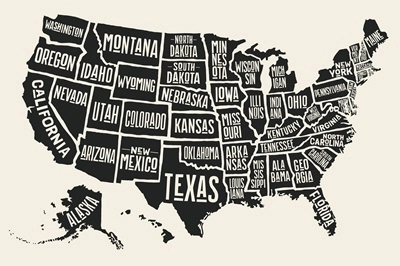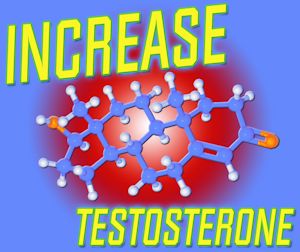Introduction
Hair loss, a common condition affecting a significant portion of the male population in the United States, often extends beyond a mere physical change. It can deeply influence an individual's psychological well-being and self-perception. A recent comprehensive survey sheds light on the emotional toll of hair loss among American males and the various coping strategies they employ to navigate this challenging experience. This article delves into the findings of the survey, offering a detailed examination of the psychological impact of hair loss and the methods men use to cope with it.
The Prevalence and Onset of Hair Loss
Hair loss is a widespread issue, with the survey revealing that approximately 50% of men experience some degree of hair thinning by the age of 50. The onset of hair loss can be a distressing experience, often beginning in the late twenties or early thirties. The survey indicates that the initial realization of hair loss can trigger a range of emotions, from denial and shock to sadness and anxiety.
Emotional and Psychological Impact
The emotional impact of hair loss is profound and multifaceted. According to the survey, 68% of respondents reported feeling less confident as a result of their hair loss. This loss of confidence can permeate various aspects of life, affecting personal relationships, professional endeavors, and overall self-esteem. Moreover, 42% of participants admitted to experiencing depression or anxiety related to their hair loss, highlighting the significant psychological burden it imposes.
The survey also explored the societal pressures and stigma associated with male pattern baldness. Many respondents expressed feeling judged or less attractive due to their hair loss, with some even avoiding social situations to conceal their receding hairlines. This avoidance behavior can lead to social isolation and further exacerbate feelings of loneliness and inadequacy.
Coping Strategies and Interventions
In response to the emotional challenges posed by hair loss, American males have developed a variety of coping strategies. The survey identified several common approaches, including the use of hair loss treatments, acceptance and adaptation, and seeking support from peers and professionals.
Hair Loss Treatments
A significant portion of respondents (55%) reported using hair loss treatments, such as minoxidil, finasteride, or undergoing hair transplant surgery. While these treatments can offer hope and a sense of control, they also come with varying degrees of success and potential side effects. The survey found that satisfaction with treatment outcomes was mixed, with some men experiencing significant regrowth and others feeling disappointed with the results.
Acceptance and Adaptation
Another coping strategy highlighted in the survey was acceptance and adaptation. Approximately 30% of participants indicated that they had learned to accept their hair loss and adapt their appearance accordingly. This approach often involved changing hairstyles, shaving their heads, or embracing a new sense of self. Acceptance can be a powerful tool in mitigating the emotional impact of hair loss, allowing individuals to focus on their strengths and redefine their self-image.
Seeking Support
The survey also emphasized the importance of seeking support from peers and professionals. Many respondents found solace in connecting with others who shared similar experiences, whether through support groups, online forums, or conversations with friends and family. Additionally, 22% of participants sought professional help, such as counseling or therapy, to address the psychological effects of hair loss. These interventions can provide valuable tools and strategies for managing the emotional toll of hair loss.
Conclusion
The comprehensive survey on the psychological impact of hair loss among American males underscores the significant emotional challenges faced by those affected. From diminished confidence and social withdrawal to depression and anxiety, the effects of hair loss extend far beyond the physical realm. However, the survey also highlights the resilience and adaptability of men in the face of this challenge, as they employ various coping strategies to navigate their emotional landscape. By raising awareness of the psychological impact of hair loss and promoting effective coping mechanisms, we can better support American males in their journey towards acceptance and well-being.
Contact Us Today For A Free Consultation

- Decoding Follicle Fallout: An Exploration of Hair Loss as a Significant Medical Concern [Last Updated On: March 2nd, 2025] [Originally Added On: March 2nd, 2025]
- Exploring the Link Between Thyroid Disorders and Hair Loss: Mechanisms, Diagnosis, and Treatment Options [Last Updated On: March 3rd, 2025] [Originally Added On: March 3rd, 2025]
- Exploring Surgical Solutions for Male Hair Loss: Techniques and Benefits [Last Updated On: March 4th, 2025] [Originally Added On: March 4th, 2025]
- Comprehensive Guide to Male Hair Loss: Causes, Treatments, and Psychological Effects [Last Updated On: March 5th, 2025] [Originally Added On: March 5th, 2025]
- Understanding Pediatric Hair Loss: Causes, Impact, and Management Strategies [Last Updated On: March 6th, 2025] [Originally Added On: March 6th, 2025]
- Exploring OTC Hair Loss Treatments for Men: Minoxidil, Herbal Supplements, and Efficacy Insights [Last Updated On: March 7th, 2025] [Originally Added On: March 7th, 2025]
- Holistic Approaches for Managing Hair Loss in American Men: Natural Solutions Explored [Last Updated On: March 8th, 2025] [Originally Added On: March 8th, 2025]
- Unveiling the Silent Culprit: The Connection Between Scalp Infections and Male Hair Loss in America [Last Updated On: March 9th, 2025] [Originally Added On: March 9th, 2025]
- Genetics and Hormones: Unraveling Male Pattern Baldness for Effective Treatment and Prevention [Last Updated On: March 9th, 2025] [Originally Added On: March 9th, 2025]
- Exploring Medical Wigs: A Vital Solution for Hair Loss in American Males [Last Updated On: March 10th, 2025] [Originally Added On: March 10th, 2025]
- Unraveling the Link Between Stress and Hair Loss in American Males: A Comprehensive Medical Insight [Last Updated On: March 12th, 2025] [Originally Added On: March 12th, 2025]
- Hormonal Influences on Male Hair Loss: Genetics, Androgens, and Treatment Strategies [Last Updated On: March 13th, 2025] [Originally Added On: March 13th, 2025]
- Unveiling the Truth: A Comprehensive Guide to Hair Loss in American Males [Last Updated On: March 15th, 2025] [Originally Added On: March 15th, 2025]
- Chemotherapy-Induced Hair Loss in American Males: Understanding, Coping, and Recovery Strategies [Last Updated On: March 16th, 2025] [Originally Added On: March 16th, 2025]
- Allergies and Hair Loss in American Males: Understanding the Indirect Connection [Last Updated On: March 17th, 2025] [Originally Added On: March 17th, 2025]
- Understanding Hair Loss in American Men: Causes, Treatments, and Future Hope [Last Updated On: March 17th, 2025] [Originally Added On: March 17th, 2025]
- Hair Loss in American Men: Psychological Impacts and Coping Strategies [Last Updated On: March 18th, 2025] [Originally Added On: March 18th, 2025]
- Monogenic Hair Loss in American Males: Genetics, Diagnosis, and Future Therapies [Last Updated On: March 18th, 2025] [Originally Added On: March 18th, 2025]
- Topical Treatments for Hair Loss: Minoxidil, Finasteride, and Emerging Therapies [Last Updated On: March 19th, 2025] [Originally Added On: March 19th, 2025]
- Alopecia Universalis: Causes, Symptoms, and Treatment Options for American Males [Last Updated On: March 19th, 2025] [Originally Added On: March 19th, 2025]
- 14 FDA-Approved Medications and Therapies for Treating Hair Loss in American Males [Last Updated On: March 20th, 2025] [Originally Added On: March 20th, 2025]
- Understanding Hair Loss: Genetics, Hormones, Age, and Management Strategies for Men [Last Updated On: March 20th, 2025] [Originally Added On: March 20th, 2025]
- Diabetes and Hair Loss in American Males: Causes, Types, and Management Strategies [Last Updated On: March 20th, 2025] [Originally Added On: March 20th, 2025]
- Understanding and Treating Hair Loss in American Men: Causes and Solutions [Last Updated On: March 21st, 2025] [Originally Added On: March 21st, 2025]
- Male Hair Loss: Understanding Causes, Impacts, and Management Strategies [Last Updated On: March 21st, 2025] [Originally Added On: March 21st, 2025]
- Telogen Effluvium in American Males: Causes, Symptoms, and Management Strategies [Last Updated On: March 21st, 2025] [Originally Added On: March 21st, 2025]
- Drug-Induced Hair Loss in American Males: Causes, Medications, and Management Strategies [Last Updated On: March 21st, 2025] [Originally Added On: March 21st, 2025]
- Antidepressants and Hair Loss in American Males: Mechanisms, Management, and Support [Last Updated On: March 22nd, 2025] [Originally Added On: March 22nd, 2025]
- Innovative Hair Loss Solutions for American Men: Technology, Biology, and Lifestyle [Last Updated On: March 22nd, 2025] [Originally Added On: March 22nd, 2025]
- Hair Loss in American Males Linked to Increased Heart Disease Risk: Insights and Management [Last Updated On: March 22nd, 2025] [Originally Added On: March 22nd, 2025]
- Hair Loss in American Males: Causes, Surgical Options, and Future Treatments [Last Updated On: March 23rd, 2025] [Originally Added On: March 23rd, 2025]
- Hair Loss in Young Males: Causes, Impacts, and Treatment Options [Last Updated On: March 23rd, 2025] [Originally Added On: March 23rd, 2025]
- Hair Cloning: A Revolutionary Approach to Permanent Hair Loss Solutions [Last Updated On: March 23rd, 2025] [Originally Added On: March 23rd, 2025]
- LLLT: A Non-Invasive Solution for Male Pattern Baldness in American Men [Last Updated On: March 23rd, 2025] [Originally Added On: March 23rd, 2025]
- Hair Loss in American Males Linked to PCOS: Hormonal Imbalances Explored [Last Updated On: March 24th, 2025] [Originally Added On: March 24th, 2025]
- Autoimmune Disorders and Hair Loss in American Males: Causes, Impacts, and Treatments [Last Updated On: March 24th, 2025] [Originally Added On: March 24th, 2025]
- Steroids and Hair Loss: Understanding Risks and Mitigation Strategies for American Men [Last Updated On: March 24th, 2025] [Originally Added On: March 24th, 2025]
- Revolutionizing Hair Loss Treatment: Stem Cells, Gene Therapy, and AI Innovations [Last Updated On: March 24th, 2025] [Originally Added On: March 24th, 2025]
- Medical Hair Loss in Men: Causes, Effects, and Management Strategies [Last Updated On: March 24th, 2025] [Originally Added On: March 24th, 2025]
- Post-COVID Hair Loss in American Males: Causes, Impacts, and Management Strategies [Last Updated On: March 24th, 2025] [Originally Added On: March 24th, 2025]
- Hair Follicle Miniaturization: Causes, Signs, and Treatments for American Males [Last Updated On: March 25th, 2025] [Originally Added On: March 25th, 2025]
- AI Revolutionizes Male Pattern Baldness Treatment and Diagnosis [Last Updated On: March 25th, 2025] [Originally Added On: March 25th, 2025]
- Hair Extensions and Permanent Hair Loss: Risks and Safe Practices for American Males [Last Updated On: March 25th, 2025] [Originally Added On: March 25th, 2025]
- Understanding and Addressing Receding Hairlines in American Men: Causes and Solutions [Last Updated On: March 25th, 2025] [Originally Added On: March 25th, 2025]
- Male Pattern Baldness: Causes, Treatments, and Future Hope [Last Updated On: March 25th, 2025] [Originally Added On: March 25th, 2025]
- Hair Loss Reversed: Success Stories and Innovative Treatments for American Men [Last Updated On: March 25th, 2025] [Originally Added On: March 25th, 2025]
- Vitamin Deficiencies and Hair Loss in American Males: Causes, Prevention, and Treatment [Last Updated On: March 25th, 2025] [Originally Added On: March 25th, 2025]
- Understanding Hair Loss in Men: Causes, Diagnosis, and Advanced Technologies [Last Updated On: March 26th, 2025] [Originally Added On: March 26th, 2025]
- Shock Loss After Hair Transplants: Causes, Timeline, and Management for American Males [Last Updated On: March 26th, 2025] [Originally Added On: March 26th, 2025]
- Thyroid Disorders and Hair Loss in American Males: Causes, Diagnosis, and Treatment [Last Updated On: March 26th, 2025] [Originally Added On: March 26th, 2025]
- Androgenetic Alopecia: Advances in Diagnosis, Treatment, and Psychological Support for American Men [Last Updated On: March 26th, 2025] [Originally Added On: March 26th, 2025]
- Hair Dyes and Hair Loss: Risks, Studies, and Safety Tips for American Men [Last Updated On: March 26th, 2025] [Originally Added On: March 26th, 2025]
- Aromatherapy for Hair Loss in American Males: Benefits and Practical Applications [Last Updated On: March 26th, 2025] [Originally Added On: March 26th, 2025]
- Chemotherapy-Induced Hair Loss in American Males: Causes, Strategies, and Future Hope [Last Updated On: March 26th, 2025] [Originally Added On: March 26th, 2025]
- Anabolic Steroids and Hair Loss: Mechanisms, Prevalence, and Management in American Males [Last Updated On: March 26th, 2025] [Originally Added On: March 26th, 2025]
- Managing Hair Loss in American Males: Causes, Diagnosis, and Treatment Strategies [Last Updated On: March 26th, 2025] [Originally Added On: March 26th, 2025]
- Immune System Disorders and Hair Loss in American Males: Causes, Mechanisms, and Management [Last Updated On: March 27th, 2025] [Originally Added On: March 27th, 2025]
- PRP Therapy: A Promising Solution for Hair Loss in American Men [Last Updated On: March 27th, 2025] [Originally Added On: March 27th, 2025]
- Scalp Psoriasis and Hair Loss in American Males: Understanding and Managing the Impact [Last Updated On: March 27th, 2025] [Originally Added On: March 27th, 2025]
- Anemia and Hair Loss in American Men: Causes, Diagnosis, and Management Strategies [Last Updated On: March 28th, 2025] [Originally Added On: March 28th, 2025]
- Postpartum Hair Loss in American Males: Causes, Symptoms, and Management Strategies [Last Updated On: March 28th, 2025] [Originally Added On: March 28th, 2025]
- Rogaine: Benefits, Risks, and Considerations for American Men's Hair Loss Treatment [Last Updated On: March 28th, 2025] [Originally Added On: March 28th, 2025]
- Hair Loss in American Men: Societal Views vs. Medical Facts and Treatments [Last Updated On: March 28th, 2025] [Originally Added On: March 28th, 2025]
- High Blood Pressure and Hair Loss: Managing Dual Health Concerns in American Males [Last Updated On: March 30th, 2025] [Originally Added On: March 30th, 2025]
- Trichotillomania in American Males: Challenges, Symptoms, and Treatment Strategies [Last Updated On: March 30th, 2025] [Originally Added On: March 30th, 2025]
- Hair Loss in American Men: Impacts, Coping, and Holistic Support Strategies [Last Updated On: April 1st, 2025] [Originally Added On: April 1st, 2025]
- Andropause and Hair Loss: Understanding Causes and Exploring Treatment Options [Last Updated On: April 2nd, 2025] [Originally Added On: April 2nd, 2025]
- Efficacy of Hair Loss Shampoos: Ingredients, Science, and Real-World Results for American Men [Last Updated On: April 5th, 2025] [Originally Added On: April 5th, 2025]
- Stem Cell Therapy: A Breakthrough in Treating Male Pattern Baldness [Last Updated On: April 5th, 2025] [Originally Added On: April 5th, 2025]
- Hair Breakage vs. Loss: Understanding and Managing Hair Health in American Males [Last Updated On: April 6th, 2025] [Originally Added On: April 6th, 2025]
- Understanding CCCA: Symptoms, Diagnosis, and Management for American Males [Last Updated On: April 6th, 2025] [Originally Added On: April 6th, 2025]
- Bariatric Surgery in American Males: Understanding and Managing Post-Surgery Hair Loss [Last Updated On: April 6th, 2025] [Originally Added On: April 6th, 2025]
- Hair Loss and Mental Health: A Holistic Approach for American Males [Last Updated On: April 6th, 2025] [Originally Added On: April 6th, 2025]
- Gastrointestinal Health and Hair Loss: Exploring the Link in American Males [Last Updated On: April 8th, 2025] [Originally Added On: April 8th, 2025]
- Minoxidil for American Men: Usage, Benefits, and Holistic Hair Care Strategies [Last Updated On: April 9th, 2025] [Originally Added On: April 9th, 2025]
- Smoking's Impact on Hair Loss in American Men: Medical Insights and Solutions [Last Updated On: April 9th, 2025] [Originally Added On: April 9th, 2025]
- Protein Shakes and Hair Loss: Risks and Mitigation Strategies for American Men [Last Updated On: April 10th, 2025] [Originally Added On: April 10th, 2025]
- Weight Loss Diets and Hair Loss: Insights for American Males [Last Updated On: April 11th, 2025] [Originally Added On: April 11th, 2025]
- Lifestyle Modifications to Combat Hair Loss in American Males [Last Updated On: April 12th, 2025] [Originally Added On: April 12th, 2025]
- Nutrition's Role in Combating Hair Loss for American Men: Key Dietary Strategies [Last Updated On: April 13th, 2025] [Originally Added On: April 13th, 2025]
Word Count: 651




















